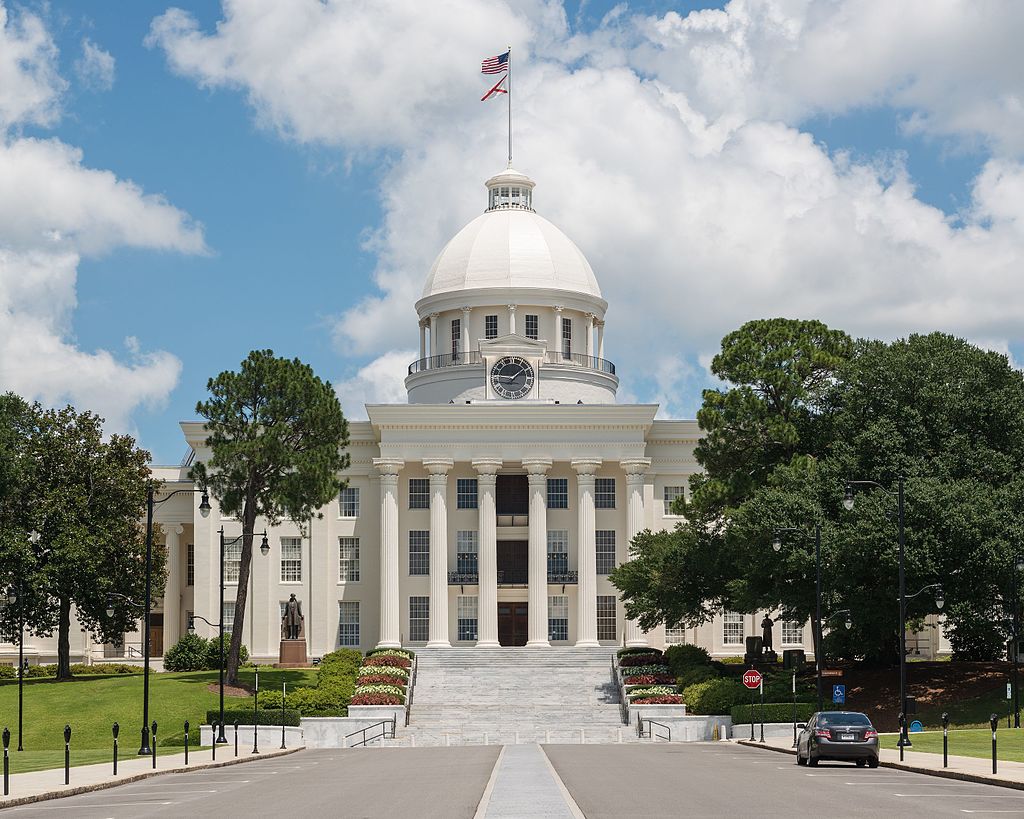An Alabama state legislator has caused a national firestorm after making controversial comments regarding abortion, including comments aimed at President Donald Trump and his family.
Rep. John Rogers (D-Dist. 52), of Birmingham, spoke out April 30 during contentious floor debate on House Bill (HB) 314 — the Alabama Human Life Protection Act — which would make performing an abortion a Class A felony punishable by 10 years to life in prison. Attempting an abortion would become a Class C felony, punishable by one to 10 years in prison.
The bill essentially bans abortion in Alabama except in cases of serious health risks to the mother or lethal fetal anomaly.
Prior to the 74 to 3 vote approving the bill, Rogers criticized the action, saying some kids are “unwanted.”
“So you kill them now or kill them later. You bring them into the world unwanted and unloved, then you send them to the electric chair. So you kill them now or kill them later,” Rogers said.
Rogers later told media outlets that he was criticizing state policies on health care and child care that he believes lead to neglect of children after they are born.
When video of Rogers’ comments began to spread on social media and conservative news outlets, his response garnered even more attention. After Donald Trump Jr. criticized Rogers’ comments, Rogers said Trump Jr. was “the best defense I got for abortion right there.”
“His mother should’ve aborted him when he was born or he wouldn’t have made that stupid comment, right?” Rogers told reporters.
Prior to the final House vote on the bill, Rogers and other Democratic lawmakers walked out in protest of the bill. The bill now goes to the Senate where most legislative watchers expect it to be passed. If the bill becomes law, it would be one of if not the most restrictive abortion ban in the country.
Alabama is one of several states in which pro-life advocates are advancing legislation hoping to force the Supreme Court to revisit the 1973 Roe v. Wade ruling that made abortion legal in the U.S. The wording of Alabama’s bill and others like it protects the sanctity of human life at its earliest stages, supporters say.
Larger goal in mind
However, the intent of current pro-life legislative efforts in Alabama and other states focuses on a larger goal — challenging legal abortion at the national level. “We decided it was time to address the actual issue, which was ‘do we want to allow abortion in our country’ and maybe ask the Supreme Court to revisit their decision,” said Rep. Terri Collins (R-Dist. 8), the bill’s sponsor.
“This bill is designed to ask the courts to revisit what I think was a bad decision.” During the debate in the House, Collins said HB 314 is focused on the personhood of the baby in the womb.
“That baby, I believe, would choose life,” Collins said. Critics of HB 314 have noted the bill’s intentional lack of exceptions for abortion in the case of rape or incest.
Joe Godfrey, executive director of Alabama Citizens Action Program (ALCAP), said omitting such exceptions is important.
“When we add exceptions we start to question the personhood of the baby,” Godfrey said. “We want to remain consistent that this is a baby no matter the origin.”
Godfrey said he expects Alabama’s bill to be challenged if it becomes law and welcomes that action. “We hope it will make its way to the Supreme Court — this bill or another,” he said.
Alabama is not the only state currently grappling with abortion legislation.
In other states
- Mississippi, Georgia and Ohio have passed bills prohibiting abortions after the fetal heartbeat is detected. Governors in Mississippi and Ohio have signed those states’ bills into law; Georgia’s governor is expected to do the same.
- Oklahoma’s governor approved a bill April 25 requiring doctors who prescribe abortion-inducing medications to inform patients that a medically induced abortion may be reversible.
- The Florida House passed a bill April 17 requiring minors to obtain parental consent for an abortion. A similar bill is making its way through the state’s Senate.
- Church leaders and Republicans in Massachusetts are opposing a bill allowing abortions after 24 weeks in some cases and removing other abortion restrictions.
- The Texas House of Representatives recently approved the Born Alive Act, imposing fines and/or imprisonment on physicians who fail to care for infants who survive an abortion. The courts also have been involved. Kansas’ Supreme Court ruled April 26 that the state’s constitution protects the right to an abortion. Under the ruling abortion would remain legal Kansas’ constitution even if Roe v. Wade were reversed.
And in February the U.S. Supreme Court temporarily blocked a Louisiana abortion law from going into effect in a 5–4 vote, upholding a lower court’s decision to block the law. Going for the win Supporters on both sides of the abortion issue are counting on one or more of the state bills making its way to the Supreme Court where a decision could settle the issue for generations.
“Our intention is to go directly to the heart of Roe v. Wade,” said Rep. Christina Hagan (R-Ohio), “to challenge the question of when a life begins in the United States.” (Carrie Brown McWhorter contributed)






Share with others: